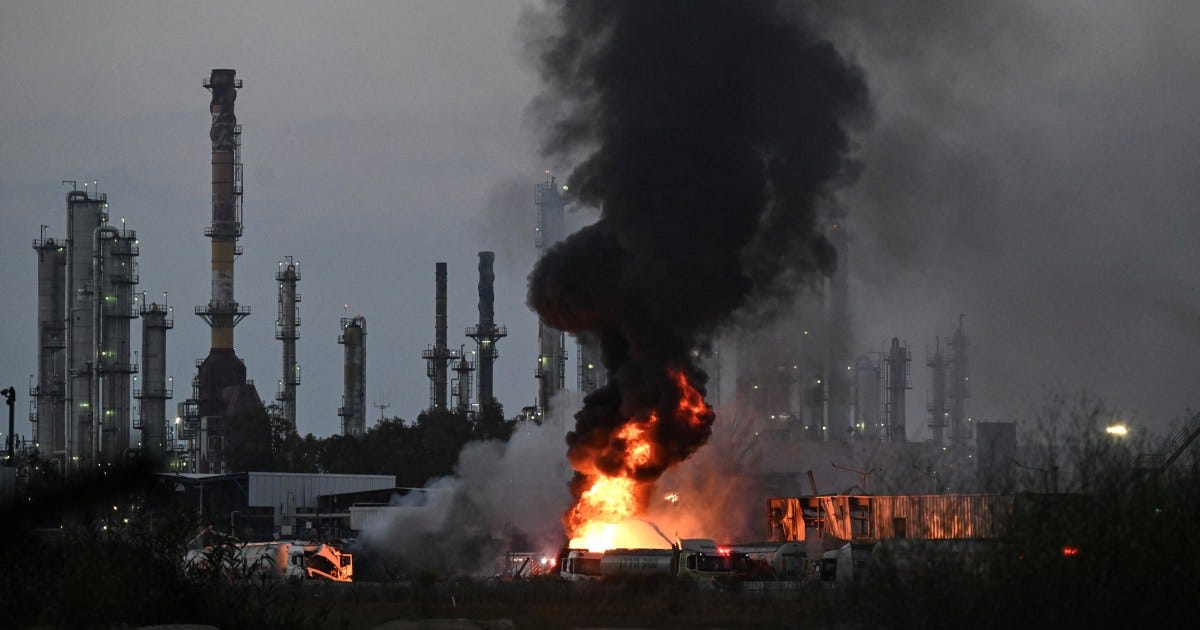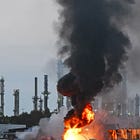Israel Admits Iran Disabled Energy Sector, Proposes Hamas-Inspired Underground Refineries
Previously vilified as a pretext for military operations in Gaza, underground facilities are now being proposed in Israel.
On 18 August, the Israeli newspaper Israel Hayom reported that military officials were considering the construction of underground refineries. The idea entered public debate after Iran’s strategic strikes on Israel’s Bazan and Ashdod refineries in June. The reported plan, said to be inspired by Hamas’s tunnel networks, reflects Israel’s anxious response to its exposed energy vulnerabilities. This protectionist shift, together with the discreet establishment of a London-based office by the Israel Petroleum Company, demonstrates Iran’s success in disrupting Israel’s energy sector. While presented as a strategic initiative, the Hamas-inspired proposal exposes deeper structural weaknesses and geopolitical miscalculations ahead of renewed hostilities with Iran.
The Bazan refinery, located in a densely populated urban area, was rendered inoperable by Iranian missiles, exposing Israel’s strategic error in siting critical infrastructure. The Israeli military’s admission and subsequent pivot to underground facilities—in a nod to Hamas’s tunnels—signals a reactive attempt to bolster energy security. However, this proposal is unrealistic. Constructing vast underground refineries demands significant capital, technical expertise, and time, resources strained by Israel’s ongoing conflicts and economic pressures. With public debt at 62% of GDP and military spending projected to rise, funding such projects is precarious. Moreover, Iran’s advanced missile capabilities render underground facilities vulnerable.
Israel’s energy system, heavily reliant on domestic refining and imports, faces collapse under sustained attacks. The Bazan strike, alongside damage to the Ashdod refinery, has shattered the illusion of energy self-sufficiency. The Israel Petroleum Company’s London posting, described as a “non-corporate, high-impact advisor,” suggests a frantic search for external expertise and investment to stabilise the sector. This move indicates Israeli recognition of domestic limitations and a pivot toward international markets, potentially to secure alternative energy supplies or partnerships. However, it also risks signaling weakness, inviting further economic and diplomatic pressure from adversaries like Iran and its allies.
The irony of emulating Hamas’s tunnels, previously vilified as a pretext for military operations in Gaza, highlights Israel’s strategic disarray. This shift aligns with broader protectionist tendencies, as Israel seeks to insulate its economy from regional threats. Yet, the plan’s feasibility is questionable, given the technical and financial hurdles, and it may serve more as a public relations gesture to reassure a rattled populace than a practical solution. Domestically, the narrative of resilience masks growing economic strain, with energy disruptions threatening industrial output and living standards. Israel’s protectionist energy strategy, while a response to immediate threats, risks entrenching economic isolation and over-reliance on costly, unproven solutions, leaving it ill-prepared for a prolonged conflict.




